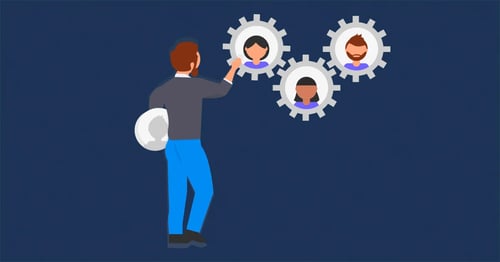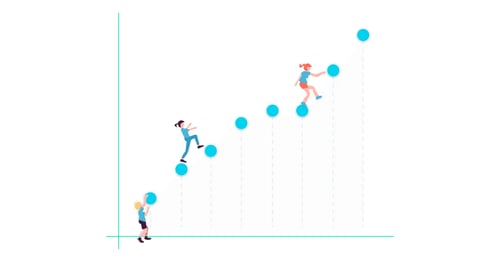10 Essential Legal Team Management Tips For Boosting Productivity

Managing an in-house legal team is seldom easy. Yet there are a number of things you can do to keep your team productive without cracking the metaphorical whip. Here are ten of the most innovative and effective tips for managing your in-house legal team and boosting its productivity.
Tip #1: Examine non-billable time activities closely

If there's one productivity killer in any legal professional setting, it's time spent on non-billable activities. Some of these activities are necessary in order to keep your team running well, but that doesn't mean that you cant implement standards and practices to reduce non-productive activities whenever possible.
Good examples of non-billable time activities that can detract from your team's ability to actively work on client matters include getting mired in paperwork or email correspondence.
In such instances, it's useful to review your document or email management strategies to ensure you're not overlooking better options.
Other issues like calendaring and scheduling can also lead to productivity hurdles, all of which can be overcome by applying technological solutions that increase ease of access to these organizational data.
Tip #2: Don't Ignore the Human Element

When it comes to building productivity, your first inclination may very well be to examine your billable hours in order to ensure you're maximizing your legal team's effectiveness and boosting its productivity.
While ensuring that billable hours are being spent productively and recorded accurately is indeed important, there are other factors at play that need to be addressed.
An example of this is to ensure that morale is high among the members of your legal team. It's difficult to quantify this so-called "soft" data but it's generally considered true that legal professionals, like all staff, are more dedicated and productive workers when they feel connected to the company and one another. In fact, some studies show that adopting a variety of social technologies results in a productivity increase of anywhere between 20 and 25 percent.
According to Angela Gorton, Director and Partner at Lupton Fawcett LLP:

"It's key to ensure that you find out what motivates each member of your team and encourage, reassure, train and empower them to be the best they can be. In turn, they will become happier, more engaged and strive to maximise their full potential. It will also make your job easier and more rewarding whilst ensuring the business thrives."
With the right approach, our employees can become the strongest brand advocates and deliver much better results if they understand the story behind your business, believe in it and feel that their efforts are meaningful.
Tip #3: Reinforce Positive Outcomes from Noteworthy Milestones
.webp?width=500&height=263&name=3-1%20(1).webp)
As a corollary to the human importance of the human element, it's crucial to cultivate and preserve the human capital you have within your legal department.
That means identifying those involved in the accomplishment of noteworthy milestones and providing positive reinforcement to build the kind of relationships with legal professionals that lead to feelings of loyalty and mutual respect.
An attorney or legal assistant that knows their positive contributions are valued - and that those contributions will be rewarded - naturally invests more time and energy into their role.
There's a high ROI to be had from building such relationships with staff members, as they will be highly motivated to strive for the kind of high personal productivity that, like a rising tide, will uplift the entire department.
Tip #4: Focus on the Right Technologies, New and Old
.webp?width=500&height=263&name=4-1%20(1).webp)
Legal professionals need the right tools and practices at their disposal in order to be as productive as they can be. These requirements are specific to the individual, as different types of people simply need different types of support to do their job efficiently and well.
This often requires experimentation, and often in the form of technologically-based tools like legal project management apps that may (or may not, if not implemented correctly) lead to that productivity bump.
Yes, experimenting with new tools can and often does lead to productivity improvements. But not every new platform, tool, or software suite will be the silver bullet for your legal team.
All in all, you need to balance end results against how cost-effective these technologies are.
Tip #5: Support Mobile Working Solutions

At the same time, there are some instances where new and emergent tech has absolutely revolutionized productivity for legal professionals.
Modern mobile working solutions are an excellent example of this. Driven by the uptick in connectivity that mobile devices like smartphones have provided us over the last decade, mobile working has become not just increasingly accessible but also a highly valued source of productivity when members of your legal team are outside of the office.
Mobile connectivity between legal staff out of the office and those at their desks means not having to rely on returning to the office to update paperwork.
Such document automation tools, as Bigle Legal, offer mobile capabilities such as uploading documents to the cloud while in the field so that office staff can access them instantly. This can make your entire legal department more agile and responsive, reducing downtime by a significant margin.
Tip #6: Invest in Long-Term Productivity Results

There's an old adage that says when your only tool is a hammer, all your problems start looking like nails. It's important to avoid succumbing to a one-size-fits-all mentality when it comes to resolving productivity issues with your legal team.
This is because one of the major pitfalls you should avoid is adopting short-term solutions without considering how those solutions will need to be updated or replaced once an immediate crisis point is passed.
Temporary solutions to productivity challenges are indeed valuable; there's no denying that. Yet stopgap measures are not meant to be long-term solutions; they're meant to buy you the time you need to find those more permanent methods.
Even in instances where operational cost may be a factor, keep in mind that a long-term solution with high initial resource investment requirements may turn out to be highly cost-effective when it's still performing admirably years from now.
Tip #7: Use Systematic Approaches to Track Productivity like Any Other Expense
.webp?width=500&height=263&name=8%20(1).webp)
Understanding how effective short-term or long-term productivity solutions are requires being able to track your progress. This necessitates a systematic approach, as this helps you identify which elements are working and which aren't and ensures the maximum efficiency of your legal team management strategy.
Using metrics to track productivity alongside expense can prove useful, especially when some data taken out of context can be less than revelatory.
Hours tracking data, for instance, might reveal some patterns that would otherwise be undetectable, but by itself can often have a negative effect on motivation.
Just like expenses, productivity needs to be tracked in real time. Don't wait until the end of the year to review performance, as this eliminates the ability to make corrections and then gather data on whether this has improved processes or not.
Take a page from your accounting or finance departments on how to track and evaluate productivity data, which will often lead to recommendations on technology options that can be adapted to your requirements.
Tip #8: Establish Clear Management and Communication Flow Procedures

Running a tight ship isn't easy. Keeping things organized and establishing clear procedures for communication flow and management is key to the efficient legal team management .
You don't need to institute the military precision of a chain of command by any means, but you can indeed manage information, communication, and commitments efficiently - and this makes an entire legal department more productive.
Clearly delineating tasks within the confines of the legal department can help avoid spending time and money on unnecessary tasks.
Administrative tasks like ensuring that duties are assigned to legal assistants and paralegals instead of to attorneys where appropriate streamlines productivity, as does leveraging support professionals like legal operations managers in order to handle procedural and organizational matters.
This kind of compartmentalization and organization provides better operational efficiency while also freeing up your legal professionals for more substantive tasks.
Tip #9: Manage Attorney-Client Expectations
.webp?width=500&height=263&name=9%20(1).webp)
Legal departments often get mired in minutiae, but it's integral to remember that attorneys and other legal professionals are, practically by definition, representing the interests of clients.
Whether these clients are internal or internal, it's crucial to manage their expectations as to what their legal representation is there to do for them and what they can - and should - do for themselves.
Questions of prioritization, expectations of the level of service and communication, turnaround time, and other issues are of paramount importance.
While legal professionals are dedicated to their clients' needs, taking on tasks that can be accomplished by clients without attorney input reduces overall level of service and has a negative impact on productivity.
Clients that know what they can rely on their legal department to do for them, and what they are empowered to do themselves, receive objectively better legal representation in the long run as a result.
Tip #10: Manage Team Workloads with a Focus on Avoiding Multitasking
.webp?width=500&height=263&name=10%20(1).webp)
Just about every legal department is likely to be keeping a number of plates spinning at the same time. Providing solutions for multiple challenges is just another day at the office; it's practically an expectation of any good legal team to juggle multiple matters at once and do so effectively.
Such a goal is eminently achievable, but it requires a team-based workload management strategy that eschews multitasking within those teams.
The truth is that the once-vaunted ability of a staff member to work on completing multiple tasks at one time has since been exposed for the fraud that it is.
Research shows that multitasking can result in productivity drops of as much as 40 percent, so ensure that different legal professionals, either individually or in teams, are focused on specific, individualized goals for the best results.
What's next?
Now when you are empowered to boost your team's performance, there's nothing that could hold you back. Yet, there is no limit to perfection. In your opinion, what are other techniques and strategies that could help increase productivity of legal teams?
Join the revolution. Start transforming your company with document automation and create contracts at speed of light. Find out more about Bigle Legal platform!
 By
By




